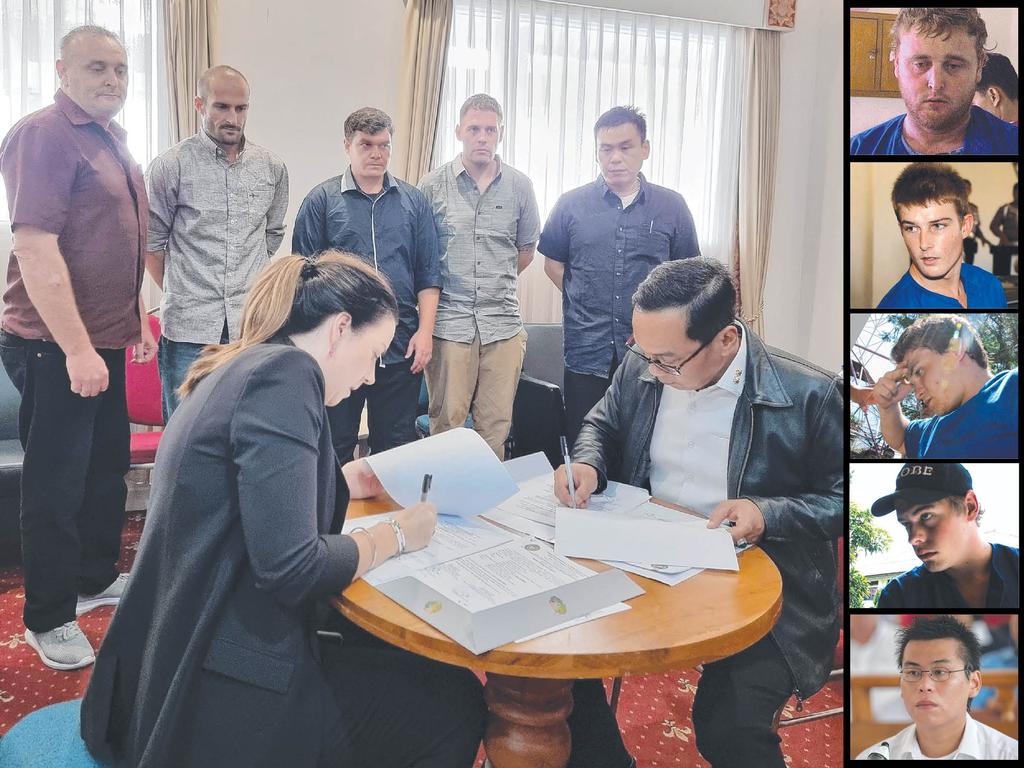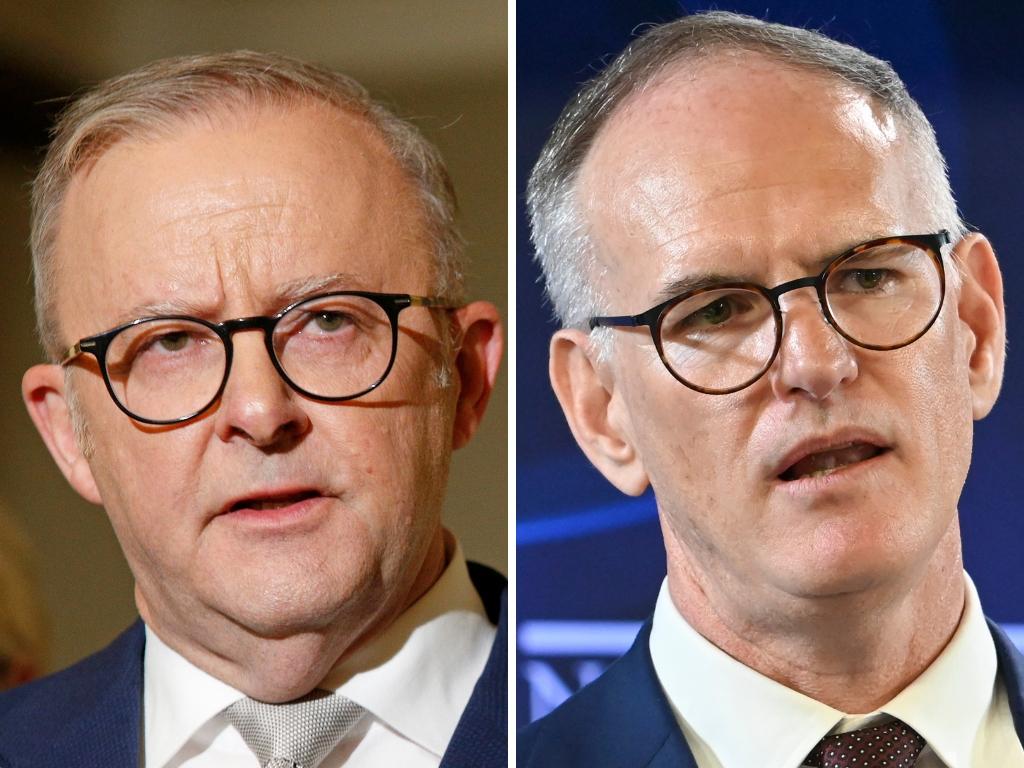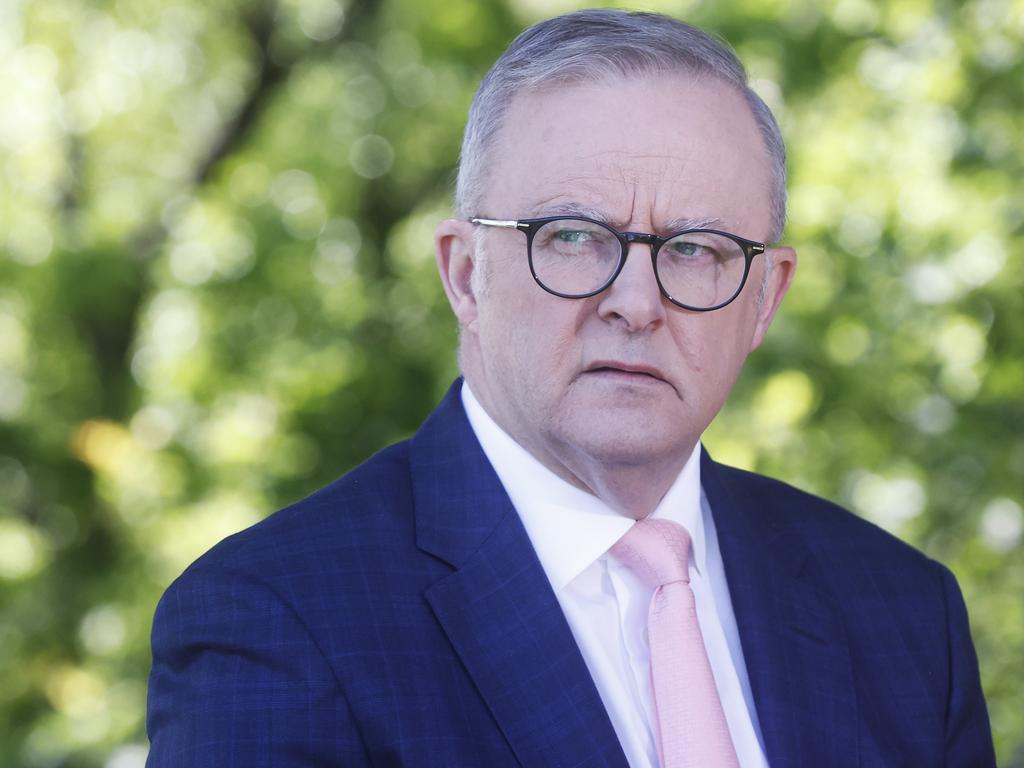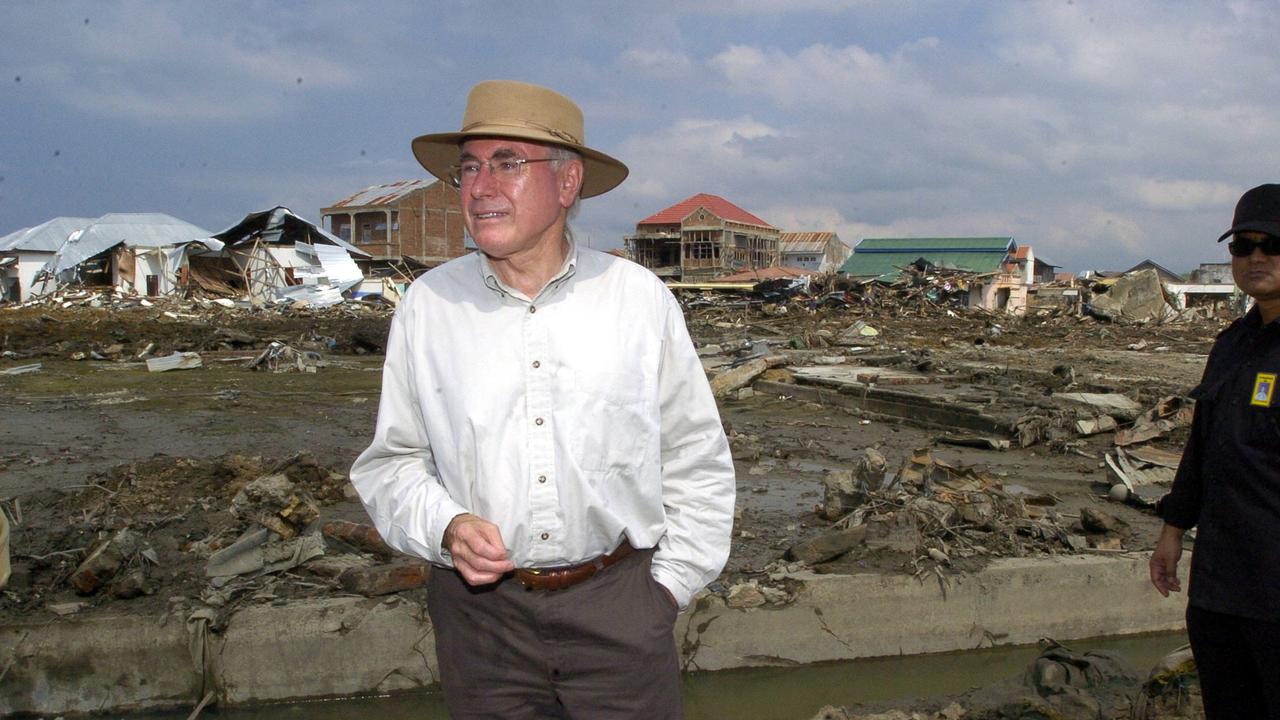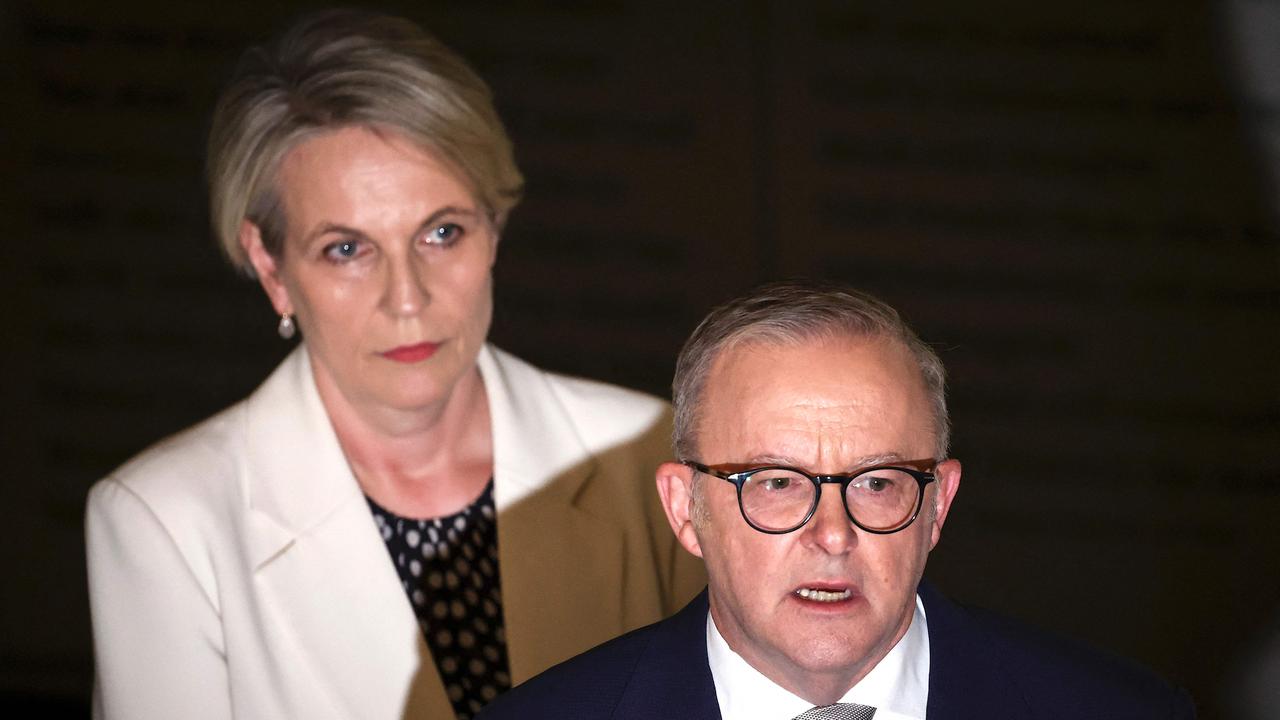Sydney pauses to remember ‘traumatising’ Lindt cafe siege on 10-year anniversary
On the 10-year anniversary since the ‘catastrophic’ Lindt cafe siege, Anthony Albanese and Chris Minns have paid respects to victims and law enforcement.
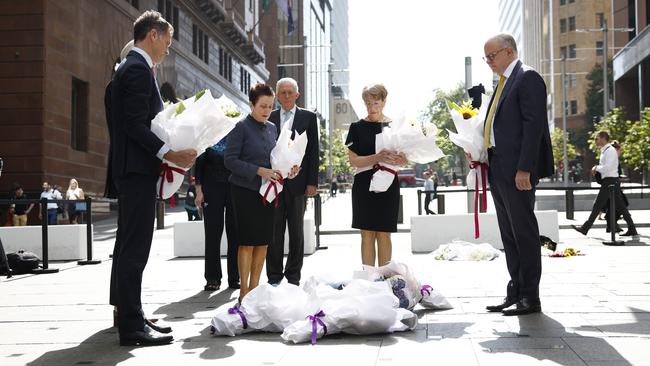
On the 10-year anniversary since the “traumatising” and “catastrophic” Lindt cafe siege, Anthony Albanese and NSW Premier Chris Minns paid their respects to victims and law enforcement while appearing to back a national review into first responder PTSD.
Leading heartfelt tributes on Monday in Martin Place in Sydney’s CBD, footsteps from the site of the then chocolate cafe at the centre of terrorist Man Monis’s 16-hour siege, the Prime Minister and Mr Minns laid flowers to the two victims, Katrina Dawson and Tori Johnson.
“Ten years on from this terrible event that traumatised this city, we pause to remember those who lost their lives, Katrina and Tori,” Mr Albanese said, flanked by Governor-General Sam Mostyn, NSW governor Margaret Beazley, Sydney Lord Mayor Clover Moore, and Katrina Dawson’s parents.
“For those who were injured and all those who are traumatised by this catastrophic event, it is a time to remember them and to pay our respects.
“It’s also a time to pay our respects to the first responders who responded so quickly and so bravely and who remain, as we know, deeply, deeply affected by the events … It is a time for us to remember them and to thank them.”
It comes amid renewed calls for a national inquiry into how trauma is managed by first responders, with former tactical operations officer Ben Bessant – who stormed the cafe and killed Monis – disillusioned by the NSW Police Force’s failure to adequately support officers dealing with trauma.
Dawson and Johnson were killed during the 16-hour siege – as was Monis – with 16 hostages escaping with their lives in some of the most dramatic scenes Sydney has seen.
Mr Minns said the state government “wouldn’t stand in the way of a national review” into first response PTSD but the government had previously completed its own “extensive” investigations into the siege – “Not just into the circumstances of the police response but also in the aftermath, so we can learn from those mistakes that were made,” he said.
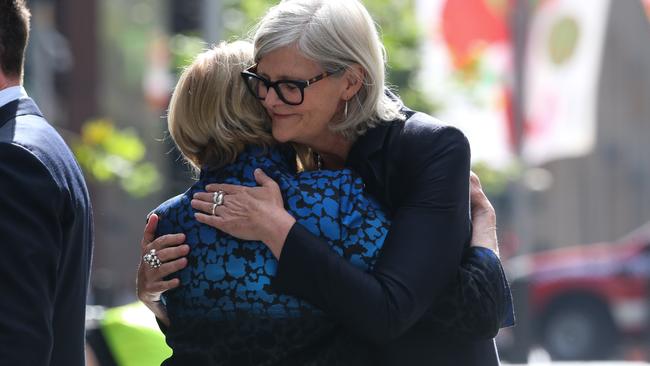
Mr Minns said it was a “poignant and sad day for Sydneysiders … for 16 hours, our state stood with those brave people.”
“And in the days that followed, our community came together – to wrap our arms around them in their shock and grief. Today, as we mark this difficult anniversary, we stand with them once again.”
Mr Minns said people’s lives were “absolutely shattered by an evil individual” that fateful day, but it was important to remember the “almost spontaneous and near universal outpouring of solidarity and love”.
The national inquiry was first raised two years ago by Dawn O’Neil, a close friend of Mr Besant, and a former CEO of Lifeline and Beyond Blue.
Ms O’Neil previously told The Australian that the problem wasn’t limited to NSW police but impacted all frontline workers dealing with graphic and traumatic experiences. “The whole work design needs to be rethought so that the exposure is limited from the start,” she said.
“It’s really standing back and saying ‘OK, how do we make sure that people are as protected as possible?’ As far as we can given the nature of the work, how do we then provide support throughout their working careers and if they become ill or develop symptoms, how do we then provide intensive care for as long as they need it until they’re well enough to return to work?
“What we’ve been doing over many years, just hands over eyes and pretending it’s not there and it’s not happening, that it’s just going to go away, that’s never going to happen.”

